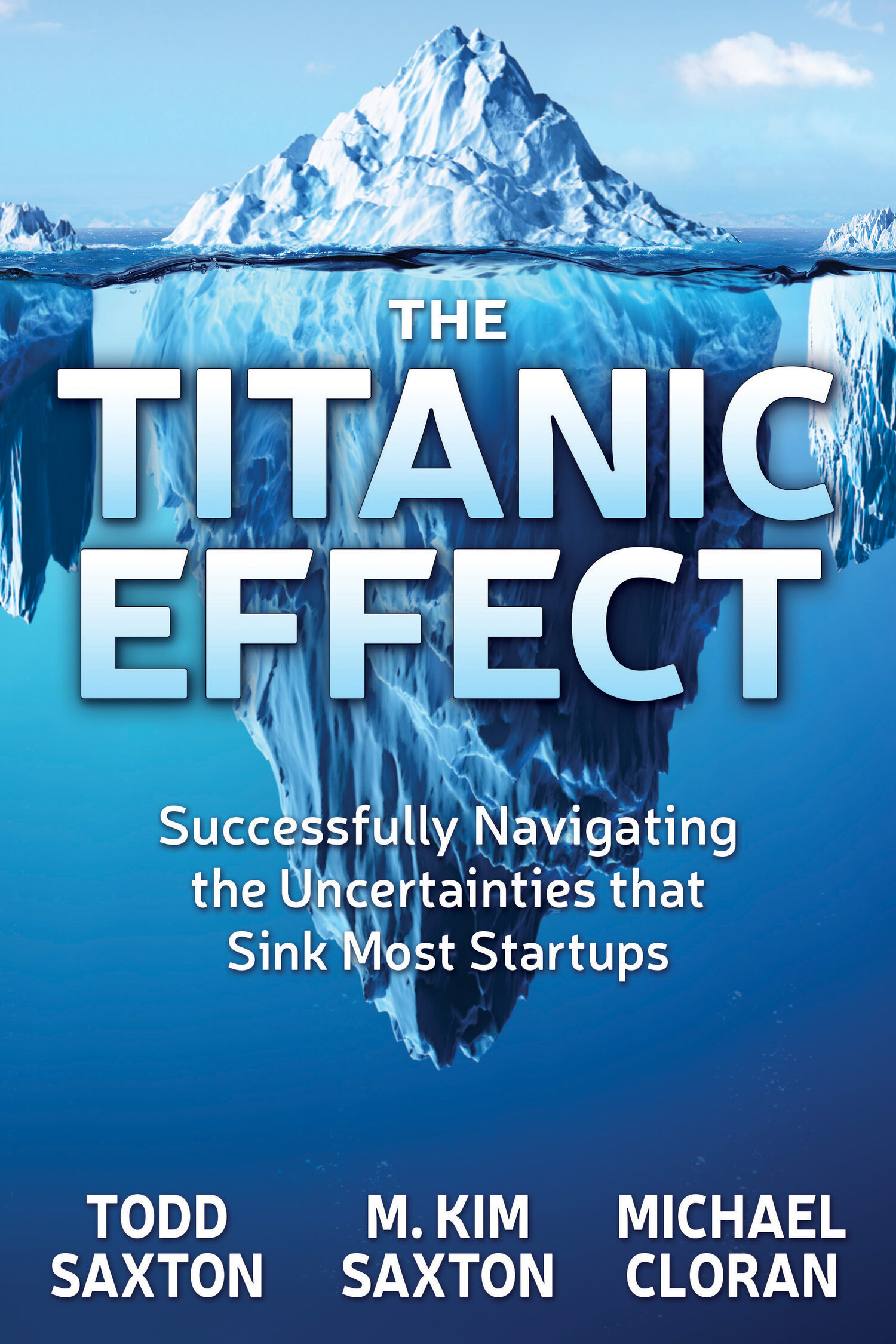One of the “oceans” of hidden debt that we discuss in The Titanic Effect is the Human Ocean. The Human Ocean includes the founders, advisors/investors who support the startup, and employees hired as it launches and grows. Each of these “seas” (or categories) can provide help to a startup. But, they can also be a source of danger or debtbergs that drag down or sink the most promising new venture.
In the book, we try to identify “red flags” or early warning signs that a debtberg in one of these seas may be on the horizon – here’s the icon we use in the book:
The purpose of these red flags is to signal to investors, advisors, or supporters how to help a startup navigate around the hidden debt to avoid damage. We thought we would share a few related to the founders, which we have affectionately dubbed the “I/We” challenges. These all refer to a startup that has gotten past the ideation stage and is in the process of launching or scaling (see last week’s blogpost for more on these stages).
The I/We Ratio. It is not unusual for a solo founder to have the core idea for a startup and navigate the early stages of uncertainty by him/herself. But by the time the startup is launched and especially when seeking outside funding, there should be a team approach in behavior as well as language. During this transition, the startup should become a “We” not an “I.” If the founder consistently refers to the startup as “I” beyond the ideation stage, it is a red flag.
The “Aye, Oui” Culture. As startups move beyond product/market fit and launch, they need to be focused and recognize the costs of saying “yes” to everything. Whether that yes takes the form of “Aye” or “Oui,” the problem is the same—startups cannot afford to devote resources to customers or products that fall outside of their area of focus. Founding teams must learn how to say “no” to customers, to requests for customization, and to “one more tweak” to the core functionality that are not a good fit.
The “i wee” Challenge. We are not big fans of founders with giant egos, as they signal they are not coachable. But some founders overdo the humble, self-deprecating bit to a fault. It is important to have some ego and pride in what the startup is accomplishing. It is also important to dream big and have bold ambitions—a startup that has wee aspirations is unlikely to change the world! A combination of founders with no ego and small thinking is unlikely to inspire investors, employees, and customers to be willing to engage with an unknown startup.
If you are a founder or supporting a startup, we can turn this around from “red flags” and what not-to-do to things you should-do. First, remember that starting a company is a team sport—think We, not I. Second, recognize tradeoffs in responding to requests for new customers or products that fall outside the focal area as the venture grows. Learn how to say “no.” And third, while staying focused, a startup should still have a big vision or BHAG—Big Hairy Audacious Goal. Changing the world does start with a single step—but dream big! Keeping your eyes on the “We’s” will make your startup more successful.
For more tips on how to navigate the oceans of uncertainty, check out the book launch on June 12, 2019. Sign up here. There will be iceberg stories, book signings, and even some merchandise to pick up.

